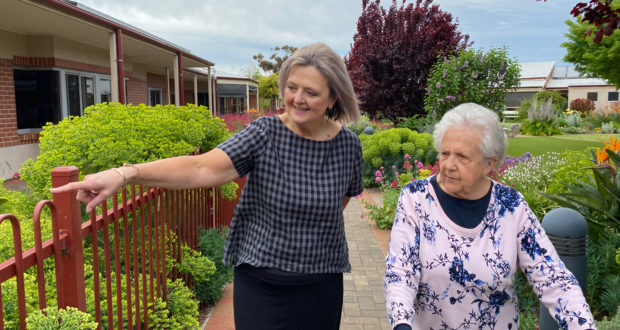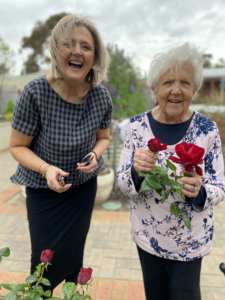Women make up the absolute majority of the healthcare workforce in Australia. It is not even close.
At last check, of the 366,000-odd aged care workers, nearly nine in 10 workers in aged care were female (87 per cent of those in residential care, and 89 per cent of those in home care or home support).
In the broader healthcare space, women outnumber men by nearly three to one, with a total of 440,000 women and 146,000 men registered and employed in Australia’s health workforce.
But still too few women rise to the upper management echelons in these organisations.
A study by US consultancy firm McKinsey found that in the US for entry level healthcare positions women outnumber men by a 66 per cent to 34 per cent split. By the time it gets to senior management level men make up 51 per cent of the positions, and by executive level men make up 70 per cent of positions.
In Australia, women only hold 14.6 per cent of chair positions and 28.1 per cent of directorships, and represent 18.3 per cent of CEOs and 32.5 per cent of key management personnel.
Over the next six weeks, Aged Care Insite will profile six women who have firmly established themselves in the aged care industry.
From educators to chief executives, these stories will uncover how these women have navigated the traditional barriers that affect the advancement of women to leadership.
Beth Davidson-Park's story
Beth Davidson-Park's journey to the upper management of an aged care provider started, somewhat unusually, at a library.
After completing her undergraduate degree at Adelaide University, the South Australian native went to Melbourne and did a diploma in information management at RMIT, which then led her to working in libraries.
To this day she loves libraries, she says, because "you know, libraries, information, community-hub – some of the best places in the world are libraries".
And since then, her working life has all been about continuing to serve the community.
From managing libraries to local government and then community services and managing large infrastructure projects, she has had a hand in the broad spectrum of community services and now, in aged care, as the general manager of Alwyndor Aged Care.
As someone coming into the care sector from outside, Beth uses her experience to achieve the ultimate outcome, doing what is best for the resident.
"For me, it's about freedom of choice and lifestyles," she tells Aged Care Insite.
"I'm not a clinician. I know what I don't know, and I fully value and strongly support the clinical elements of what we do, but I strive not to lose sight of the lifestyle or human factor in that.
"And my concerns and my passion, are that one of the measures of our success and indeed our funding rests on the outcomes we achieve for individuals and communities."
She says that while clinical and financial outcomes are extremely important, a good aged care home cannot be measured on those outcomes alone.
"Someone can receive the best clinical care, but are they also achieving what they want to achieve in their lives? Are they as content as they could possibly be with whatever physical or psychological or psychological, cognitive restrictions or issues they might have?
"For me, that's where I come from, is ensuring on whatever canvas I'm working, that people have the best life that they can."
Beth, who serves and has served on a number of boards during her career, says that rising to management in any industry is never easy, especially as men still dominate the boardroom.
"I have no hesitation in holding my own around any table. I think the representation of women has certainly increased, but as you look across boards you see that the representation of men still dominates over women," she says.
"I've certainly come up against, on different occasions in my career, very clear dominance of male views or very assertive views. But I guess I always operate from that skills, experience and values base. Work respectfully, but also demanded respect."
To any women looking to move into management in aged care, Beth says that having clear goals is important, as well as confidence in one's own skills.
"I would describe myself as feminist in many ways with feminist views, but that's by acknowledging myself as competent, confident, able to do the job, holding my own view.
"So, I think it is having that level of confidence in what you do, and being frank and fearless in the way you approach it."
Do you have an idea for a story?Email [email protected]
 Aged Care Insite Australia's number one aged care news source
Aged Care Insite Australia's number one aged care news source



she’s an incompetent psycho to most people who have experienced her vicious behaviour in the workplace.